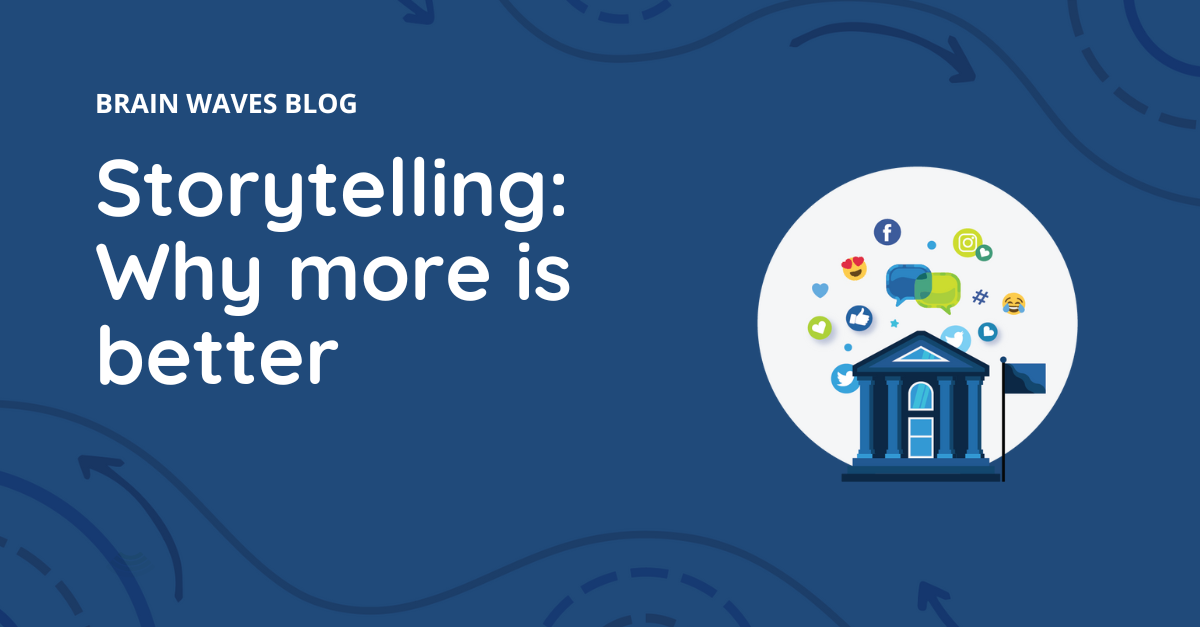Storytelling: Why more is better

You need more stories, storytellers, and awareness of the stories other people tell that shape consumer opinion. That’s how you’ll stand out to prospective students, donors, opinion leaders, and rebuild the public’s trust in higher education.
My emphasis of this recommendation increases with each industry analysis Campus Sonar completes. The data from our college choice and value research is clear.
We live in a society dominated by social proof. While distrust of government, media, corporations, and institutions is at an all-time high, “a person like me” still holds sway. When was the last time you made a choice—whether where to eat, what car to buy, or what hotel to stay in—without seeking out others’ opinions? The more social proof about your campus, the better.
Connecting stories to revenue
Teenagers are desperate for opinions about college—if they should go, where they should apply, what they should major in. At the risk of sounding like a broken record… they’re asking on Reddit. Over the last few years, they’ve been asking about the computer science major. The stories they heard were grim. The perceived negative job outlook had become a meme. This month, The New York Times suggested computer science grads would be lucky to work at Chipotle. If your computer science enrollments fell this year, these stories are part of the cause. It may get worse next year. These stories were warnings for campus leaders, but many weren’t aware they were being told. One university I spoke with saw a 50% drop in computer science deposits this fall. That's a $3M problem.
A new storytelling playbook
The stories you tell don’t need to be polished. In fact, it’s often better if they’re not. The storytellers don’t all need to be on payroll. They’re seen as more reliable if they’re not. Your institution telling your story better isn’t enough. More people telling their stories about your institution hits the mark. The ultimate goal is that every member of your target audiences see themselves in a story.
- Prospective students see their future selves to fuel a sense of optimism, or their current selves to satisfy a need for belonging.
- Alumni see their past selves to prompt a pay-it-forward mindset, or their desired selves when a donor shares their story of compassion and impact.
- Legislators see their constituents benefitting from vital services, eager employees, and life-changing research.
This approach requires a shift in strategy. It emphasizes listening, relational engagement, empowerment, and amplification more than the traditional higher ed storytelling model. While it does emphasize more, it can be supported by frameworks, policies, and yes—even AI, that make it doable for small teams. We apply this playbook to produce actionable strategies to increase enrollment in our latest research report.
More stories, storytellers, and awareness of the stories other people tell makes your institution more audience-centric. Your stakeholders feel seen, and confident in their decision-making. Whose story are you telling?

